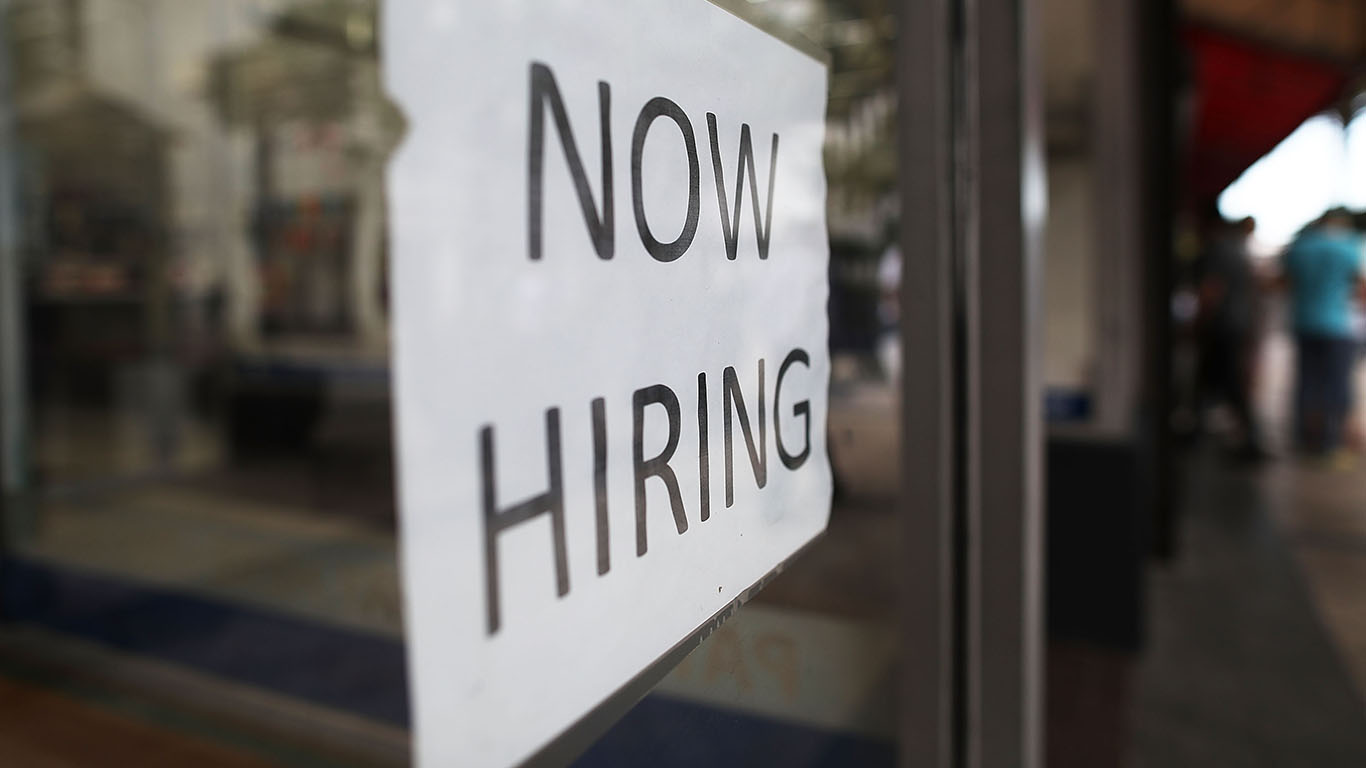
Small businesses are often collectively referred to as the backbone of the U.S. economy. While the stock market managed to recapture all of the losses from February and March and hit new all-time highs recently, the stock market does not represent the small business sector. One critical view of small businesses is the trend on wages and hiring.
According to IHS | Markit, small businesses represent nearly 95 percent of all U.S. employers. This group tracks the number of people who are employed by small businesses and they track the wages that are being paid. The Paychex | IHS Markit Small Business Employment Watch was released on September 29, 2020 and the full report has some improvements that should still probably be interpreted as a mixed report since the data are not universally better.
Average hourly earnings at small businesses has still managed to rise by 3.14% to $28.20 per hour. That said, the Small Business Jobs Index was down 3.85% to a reading of 94.44 versus a year ago.
On an industry basis, it is the construction industry which led all other sectors in small business employment growth. That has been the case for five consecutive months now and this is now down just 1.38 percent from the pace of 2019.
The combined grouping of Leisure and Hospitality is the weakest index and is nearly 4 points lower than the Manufacturing sector. The Leisure and Hospitality index slowed in September’s monthly changes and in the annual changes. While the Leisure and Hospitality sector showed lower employment as a whole, the new average did manage to post the strongest hourly earnings growth in September with a gain of 5.31% from a year earlier to $18.53 per hour. That said, the average hours
The highest earning category of Professional and Business Services showed the smallest percentage annual growth (up 2.36%) to $33,83 per hour. The second highest hourly earnings was in Financial Activities, and the growth there was 2.39% to $31.74 per hour.
While the Paychex | IHS Markit is not intended to be a precursor to each month’s government release of the Employment Situation from the Department of Labor, this is a time when the recovery is seeing some mixed economic reports about how strong the real recovery is. It seems that every economic report is being viewed closer than normal for more input about how the real economy is doing outside of the corporate giants.
There are some generalities that can be taken from the full release for September. The Northeast U.S. had its biggest one-month gain in job growth, while job growth raked last in the West. The top states for employment growth were Florida, Missouri and Texas, and all three states saw improvements in September.The three states with the lowest-ranked indexes were California, New York and Washington.
The states of New Jersey, Massachusetts and Pennsylvania lead hourly earnings growth among states, and in that same order. Denver and then Tampa lead all metropolitan areas tracked by Paychex for the rate of small business hiring, while Seattle and San Francisco had the largest decrease of hiring in September,
This monthly report uses actual payroll data from roughly 350,000 Paychex clients. It does not offer the entire jobs and earnings picture, but it still covers enough of the economy that it has its own merits.
Are You Ahead, or Behind on Retirement? (sponsor)
If you’re one of the over 4 Million Americans set to retire this year, you may want to pay attention.
Finding a financial advisor who puts your interest first can be the difference between a rich retirement and barely getting by, and today it’s easier than ever. SmartAsset’s free tool matches you with up to three fiduciary financial advisors that serve your area in minutes. Each advisor has been carefully vetted, and must act in your best interests. Start your search now.
Don’t waste another minute; get started right here and help your retirement dreams become a retirement reality.
Thank you for reading! Have some feedback for us?
Contact the 24/7 Wall St. editorial team.


